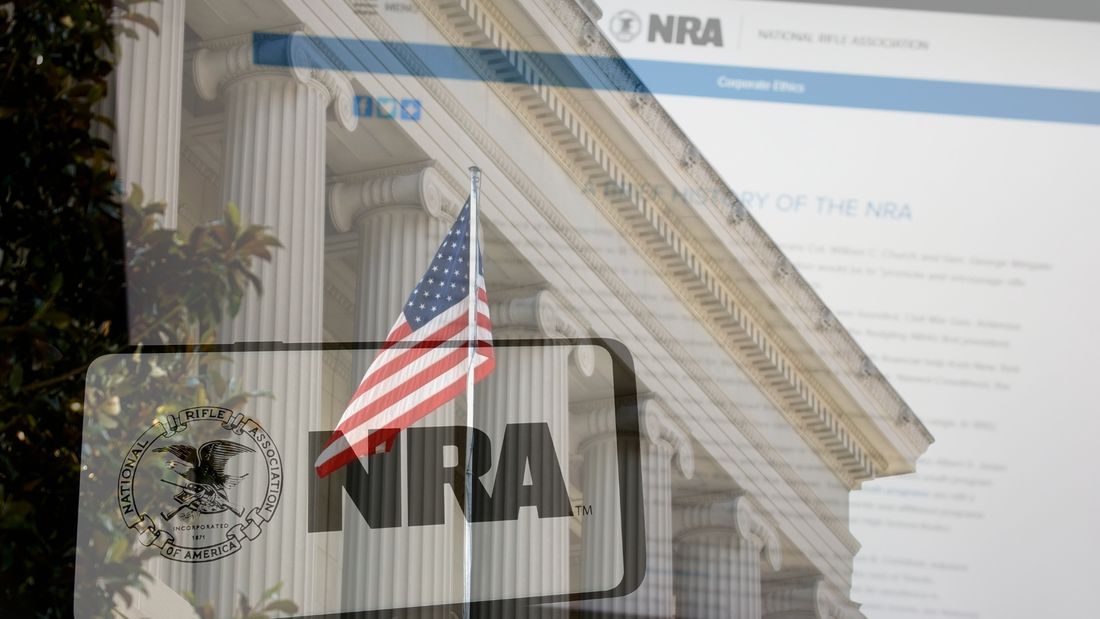National Rifle Association v. Vullo In this age of “corporate social responsibility,” can a government regulator mount a pressure campaign to persuade businesses to blacklist unpopular speakers and organizations? This is the central question the U.S. Supreme Court faces in National Rifle Association v. Vullo.
Here's the background on this case: Maria Vullo, then-superintendent of the New York Department of Financial Services, used her regulatory clout over banks and insurance companies in New York to strongarm them into denying financial services to the National Rifle Association. This campaign was waged under an earnest-sounding directive to consider the “reputational risk” of doing business with the NRA and firearms manufacturers. Vullo imposed consent orders on three insurers that they never again provide policies to the NRA. She issued guidance that encouraged financial services firms to “sever ties” with the NRA and to “continue evaluating and managing their risks, including reputational risks” that may arise from their dealings with the NRA or similar gun promotion organizations. “When a regulator known to slap multi-million fines on companies issues ‘guidance,’ it is not taken as a suggestion,” observed Gene Schaerr, PT1st general counsel. “It’s sounds more like, ‘nice store you’ve got here, it’d be shame if anything happened to it.’” The U.S. Court of Appeals for the Second Circuit reversed a lower court’s decision that found that Vullo used threats to force the companies she regulates to cut ties with the NRA. The Second Circuit reasoned that: “The general backlash against gun promotion groups and businesses … could (and likely does) directly affect the New York financial markets; as research shows, a business's response to social issues can directly affect its financial stability in this age of enhanced corporate social responsibility.” You don’t have to be an enthusiast of the National Rifle Association to see the problems with the Second Circuit’s reasoning. Aren’t executives of New York’s financial services firms better qualified to determine what does and doesn’t “directly affect financial stability” than a regulator in Albany? How aggressive will government become in using its almost unlimited ability to buy or subpoena data of a target organization to get its way? Can government stymie the speech rights of a national advocacy organization with 5 million supporters? Even if you take Vullo’s justifications at face value, the government cannot override the Bill of Rights to slightly reduce the rate of corporate bankruptcies. The dangers of a nebulous, government-imposed “corporate social responsibility standard” is a grave threat to all constitutionally protected individual rights. Protect The 1st is far from alone in this view. The ACLU, which also filed a brief in favor of the NRA, writes: “This is a critically important First Amendment fight: if government officials can pressure the businesses they regulate to blacklist the NRA in New York, then officials in other states can punish other advocacy organizations in the same way – including the ACLU itself.” Other not aligned with the NRA are alarmed as well. James P. Corcoran, former New York Superintendent of Insurance, in his amicus brief writes that while he does not support the National Rifle Association, he believes “that the threat to free speech at issue here could equally harm groups aligned with his own political views if left unchecked." For all these reasons, we urge the Supreme Court in this case to put the First Amendment first. Comments are closed.
|
Archives
June 2024
Categories
All
|
ABOUT |
ISSUES |
TAKE ACTION |



 RSS Feed
RSS Feed